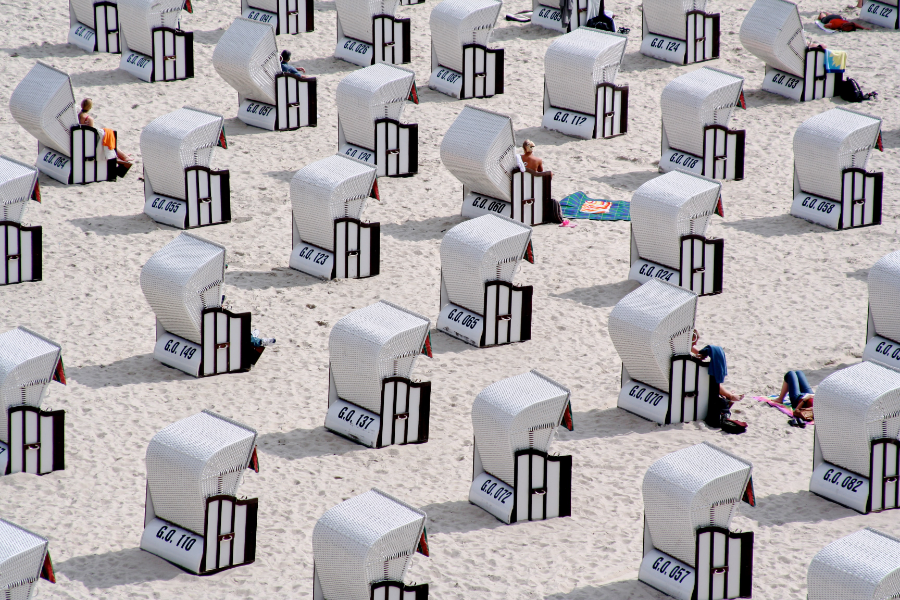Travel marketing
In the first of a series of articles looking at how leisure travel is expected to recover, our Creative Content Strategist, Kristina Sikorskaja, provides a round-up of thought-provoking industry opinion and insights of our own regarding consumer priorities and business opportunities in the early phases of Travel 2.0.

Nevertheless—what’s interesting—we will see destinations, particularly those heavily dependent on tourism, including Greece, Spain, Italy, and Portugal, implementing measures that would attempt to reposition the countries as ‘safe destinations’ for local and international travellers. As the Spanish Minister of Tourism, Reyes Maroto goes on, “We depend on the evolution of the pandemic and we have to guarantee, when international tourism opens, that a person who comes to Spain is a safe person.”
The measures could potentially include novel social distancing rules, with some propositions being quite extreme—like sunbathing in plexiglass boxes set up on beaches. Another suggestion has been advancing test programmes—Greece, for instance, is considering making entry subject to a “health passport” which would indicate whether travellers are either virus-free or no longer infectious, to allow for a shorter summer season from July onward.
Many airlines are now operating with safety measures which include reducing the number of people boarding at a time and blocking out the middle seats on planes. The latter measure, however, is unsustainable and cost-ineffective, plus it hasn’t proven to effectively reduce the spread, which suggests that re-configurations of the airplanes may well take place.
To offer smart solutions to plane re-configurations, the Italian company Avio interiors has recently presented two design mock-ups for future airplane seating. While the first design features protective barriers installed between the passenger seats, the second mock-up is far more futuristic—the centre seat in each row is reversed so that one person is facing opposite the other two between protective glass barriers.
 Yet far more immediate measures can be seen in the latest plans announced by Ryanair. The airline expects to reintroduce 40% of flights from 1 July and to operate with reduced in-flight pre-packed food and drinks service as well as bans on toilet queues. To visit the bathroom, passengers will need to request access.
Yet far more immediate measures can be seen in the latest plans announced by Ryanair. The airline expects to reintroduce 40% of flights from 1 July and to operate with reduced in-flight pre-packed food and drinks service as well as bans on toilet queues. To visit the bathroom, passengers will need to request access.
Moreover, as holidaymakers seek assurances about sterile rooms and clean public spaces, the hotel industry will be also adapting new rules, standards and technologies. Bigger players will be taking advantage of sterilisation robots, while smaller businesses will depend more on the manual cleaning with hospital-grade disinfectant, meaning that consumable amenities (toiletries, coffee and tea), as well as items such as TV remotes will be sanitised and placed in sealed bags, while non-essential items such as magazines and decorative pillows will need to removed.
For more industry insights on how the travel industry is changing and adapting to the global pandemic, read up our other articles in the Rebuilding Travel series:
– Rebuilding Travel, Part 2: Behavioural & Industry Changes
– Rebuilding Travel, Part 3: Demographics, New Priorities & Motivations
– Rebuilding Travel, Part 4: Content Strategies to Entice Bookings